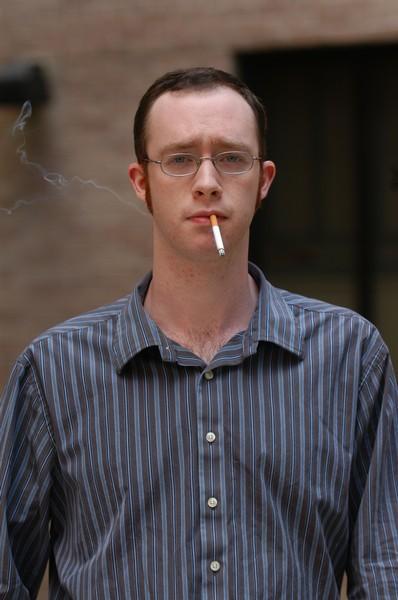I was stumped as to what I would write today’s column on. Bush’s proposed mandatory rating system for pornography was an early favorite, but in the end I decided that I’d need to do more research – and no, it’s not what you think – before I oiled up and tackled this topic. I also considered writing about Newman day, a Princeton tradition of drinking 24 beers in 24 hours, but I decided that was nothing new for most students’ weekends here anyway. Instead, I’ll write about a man who was believed to have entered and left the world on the same day, albeit 52 years apart: William Shakespeare.
The Bard’s biography is relatively brief, although individuals still seem to be able to bang out 400-page-plus books out of the briefest skeletons of a famous life. We know he was born in Stratford-upon-Avon, grew up there, married an older woman he had knocked up, moved to London, wrote his plays and acted there, became wealthy and died in Stratford.
There are controversies aplenty surrounding what he did, when he did it (even whether he wrote his own plays – other candidates for authorship include Sir Francis Bacon, Christopher Marlowe and the Earl of Oxford among others) and, his religious and sexual proclivities. While all of these debates are interesting and because of time’s ravages, I doubt that we will ever know the truth.
They are almost incidental to the greatness of the works he left behind.
When we think of cultural achievements in modern times – usually great novels or art and to a lesser extent films – the works themselves are rarely strong enough to last longer than society’s short attention span.
Even the work of men in whom I hold great stock, H.L. Mencken, Tom Wolfe and Alan Sillitoe, will most likely not warrant a column on the anniversary of their birth several centuries later.
So what can one say about a man who has been dead for 390 years? Simply that he was probably the greatest creative mind in English – if not world – literature. During the run up to the year 2000, there was serious debate as to who was the greatest man of the past 1,000 years. Shakespeare regularly made the top 20, higher than any other man who wrote for a living. Others who were not professional writers per se such as Churchill and Darwin ranked – and deserved to be ranked – higher.
What is it that makes Shakespeare so special? He wrote in what was at the time one of the lesser languages of Europe with fewer speakers than German or French in a kingdom that was just beginning to rise out of years of civil strife. His mastery of that language, especially in his tragedies “King Lear,” “Macbeth” and in a play that rivals the Bible for the beauty of its prose, “Hamlet.” His canon of plays, all of which are still performed – although finding a company doing one of his more obscure works, such as “King John” or “Henry VI Part I” is somewhat rare – teach us more about human weakness and strength, cupidity and honesty, valor and treachery.
His contribution in characters such as Hamlet, Iago, Rosalind, Falstaff and Juliet have enriched both our knowledge of how people work as well as several actors who find these roles to be among the most interesting and most challenging.
I could fill up this column with quotes, but I think I’ll finish up and let you move over and read my esteemed colleague Bryan Beyer’s latest masterpiece. Shakespeare is one of those writers whose work will stay with you. As Hamlet knows, “something is rotten in the state of Denmark” and “the rest is silence.”
Now there was a man worth remembering.
Ryan is a history senior. Contact him
at opinion@lsureveille.com
Shakespeare man for all times
April 24, 2006

Raising a generation of cowards



